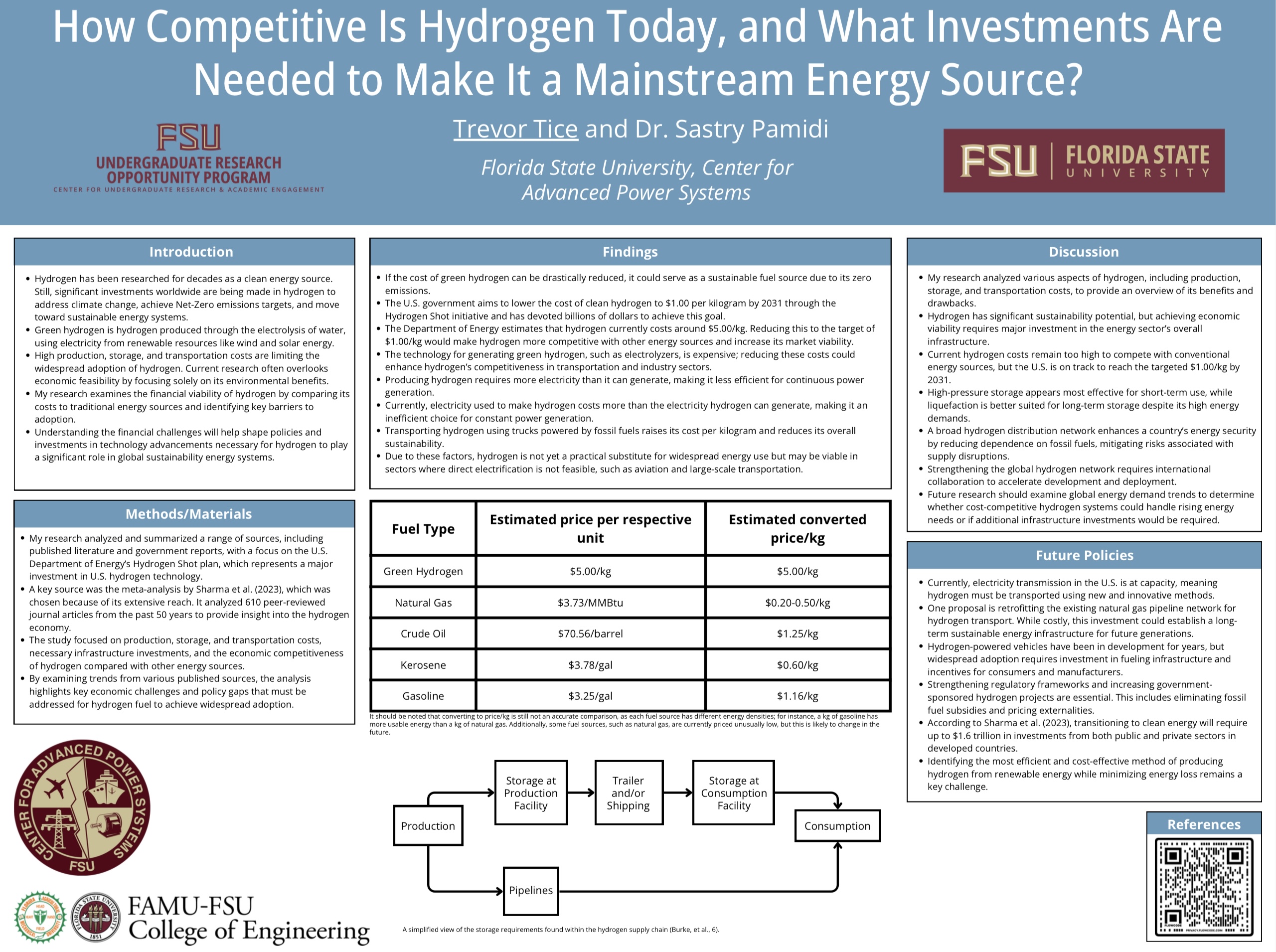Research Symposium
25th annual Undergraduate Research Symposium, April 1, 2025
Trevor Tice Poster Session 3: 1:45 pm - 2:45 pm/ Poster #243

BIO
Trevor Tice is a first-year finance major thinking about double majoring in accounting from Jacksonville, Florida. He is passionate about automobiles and took an interest in this project because of its potential impact in the automobile sector with the development of hydrogen cars. In his spare time he enjoys art, movies, and basketball.
How Competitive Is Hydrogen Today, and What Investments Are Needed to Make It a Mainstream Energy Source?
Authors: Trevor Tice, Dr. Sastry PamidiStudent Major: Finance
Mentor: Dr. Sastry Pamidi
Mentor's Department: Electrical & Computer Engineering Mentor's College: FAMU-FSU College of Engineering Co-Presenters:
Abstract
This study analyzes the financial viability of hydrogen as an energy carrier, examining its economic feasibility, implementation challenges, and role in achieving global sustainable energy systems. With climate change and Net-Zero targets driving many countries to seek alternative energy solutions, green hydrogen has emerged as a promising candidate. Governments, including the United States, have invested billions in developing hydrogen technologies, particularly in storage capabilities and infrastructure expansion. However, widespread adoption remains limited due to high production, transportation, and storage costs. This study undertook a literature review, analyzing and synthesizing information from various sources on green hydrogen within the context of sustainable energy systems. Understanding hydrogen’s role in sustainability requires examining its production methods and comparing its financial viability against conventional energy sources like fossil fuels. Analysis of the available data suggests that hydrogen’s economic challenges stem primarily from its physical properties. Transportation as a gas requires either high-pressure containment or liquefaction—both of which add to the costs, while liquefaction uses an expensive, energy-intensive cooling process. My analysis suggests that the current cost of hydrogen fuel remains too high to incentivize a large-scale shift from traditional energy sources. Lowering costs through production and infrastructure advancements could enable greater adoption, potentially reducing carbon emissions and enhancing global sustainability. This research assesses hydrogen’s current competitiveness and the investments needed for it to become a mainstream clean energy source. The United States Department of Energy’s initiatives aim for an 80% reduction in cost by targeting $1 per kilogram within a decade.
Keywords: Hydrogen Energy Sustainability Economic


